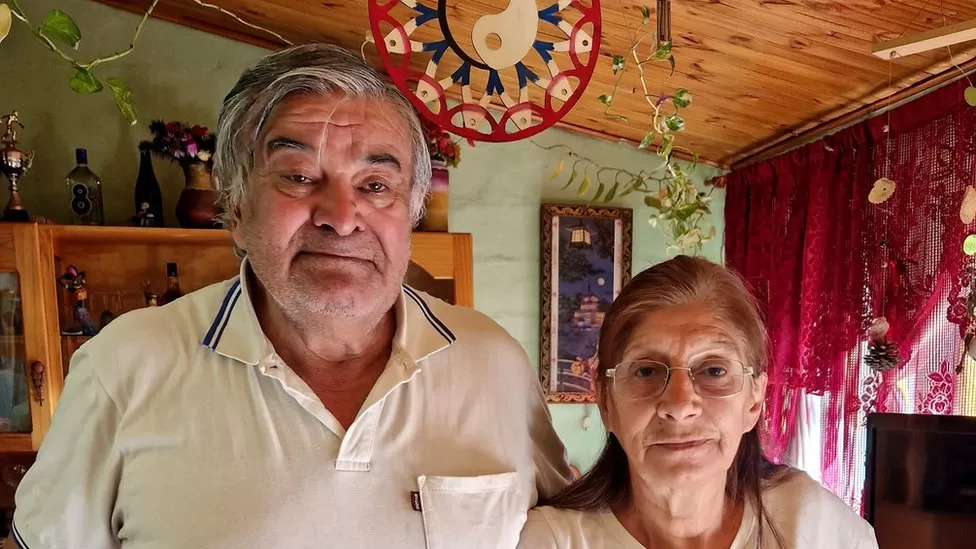Survivors of crimes committed by the 1970s military junta in Argentina are fighting to see a priest stand trial for his alleged role in kidnappings and torture against opponents of the regime.
As Elena Basso reports from San Rafael in Argentina, the case shows that the wounds caused by the coup are still far from healed.
“The moment I saw Franco Reverberi, the priest from my village, come in, was the moment I thought I was going to die,” recalls Mario Bracamonte.
The fact that a clergyman was visiting him in his prison cell in northern Argentina came as no comfort at all.
“I was lying on the floor soaked in blood after a night of torture. He came in dressed in his military uniform and looked at me impassively. I could not believe it.”
Mario Bracamonte was one of thousands of Argentines who were kidnapped by soldiers after the military coup on 24 March 1976.
The military junta led by Jorge Videla which seized power targeted anyone who opposed the dictatorship and an estimated 30,000 people were killed before the transition to democracy in 1983.
Mario, who was 28 at the time, had ended up in the soldiers’ sights for his left-wing activism.
Like thousands of others before and after him, he was taken to a clandestine detention centre where perceived opponents of the regime would be tortured away from prying eyes.
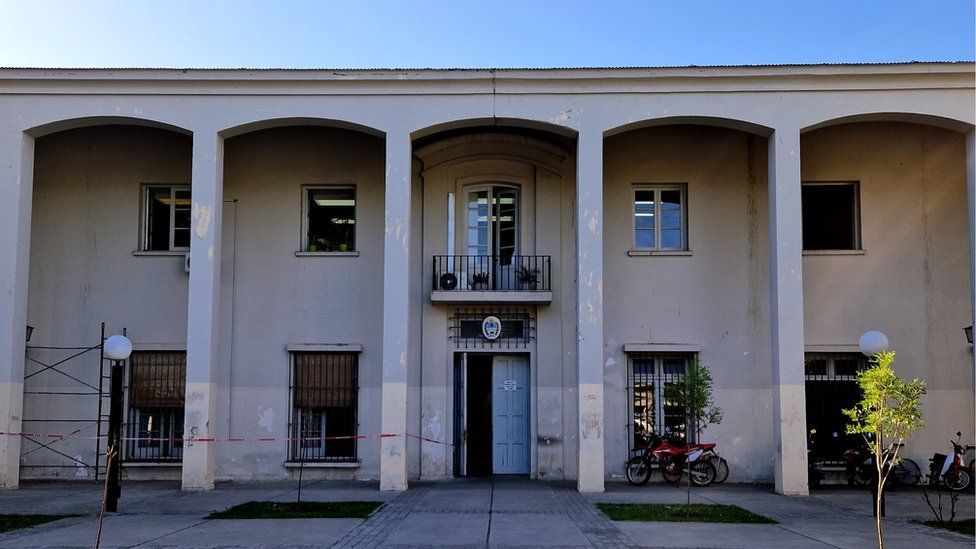
Many were killed, some on “death flights”, during which the victims would be drugged and thrown from helicopters and planes into the sea while still alive.
Mario survived. After being transferred to other clandestine detention centres in Mendoza and La Plata, he was finally released on 4 March 1977, almost a year after his arrest.
His wife Titi, who had been held at the La Departamental detention centre in their hometown of San Rafael, also survived.
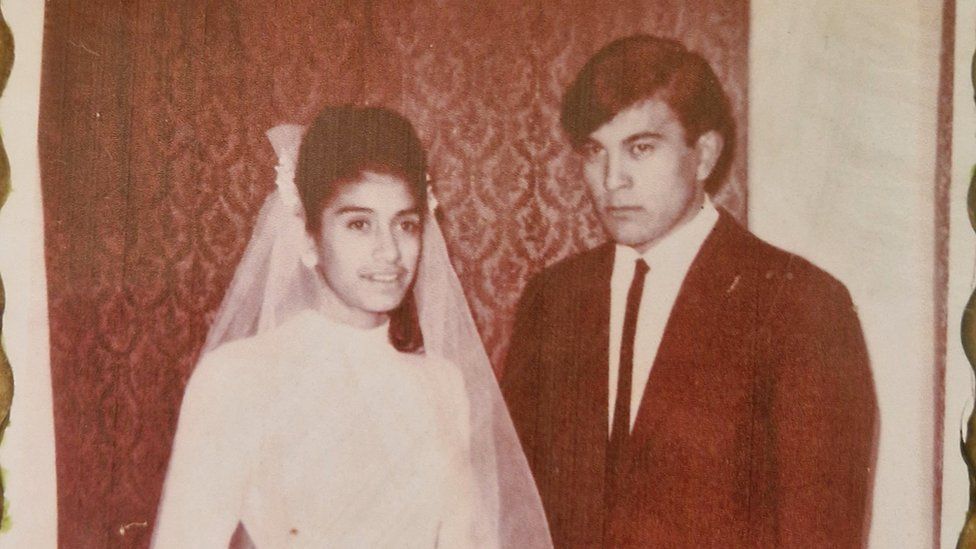
They have been married since before they were detained but they did not speak of their time in captivity neither in public nor to each other until 2010.
That year, Franco Reverberi had been summoned to appear at a trial against soldiers accused of crimes committed under military rule, but not as one of those accused, but rather as a witness.
However, as part of that trial, four former detainees – among them Mario Bracamonte – testified that Father Franco Reverberi, an Italian national by birth, had been a regular at the clandestine detention centre.
They said that rather than helping the prisoners, he would watch them being tortured, sometimes holding a Bible while he was telling them that it was God’s will that they provide their torturers with the information they were after.
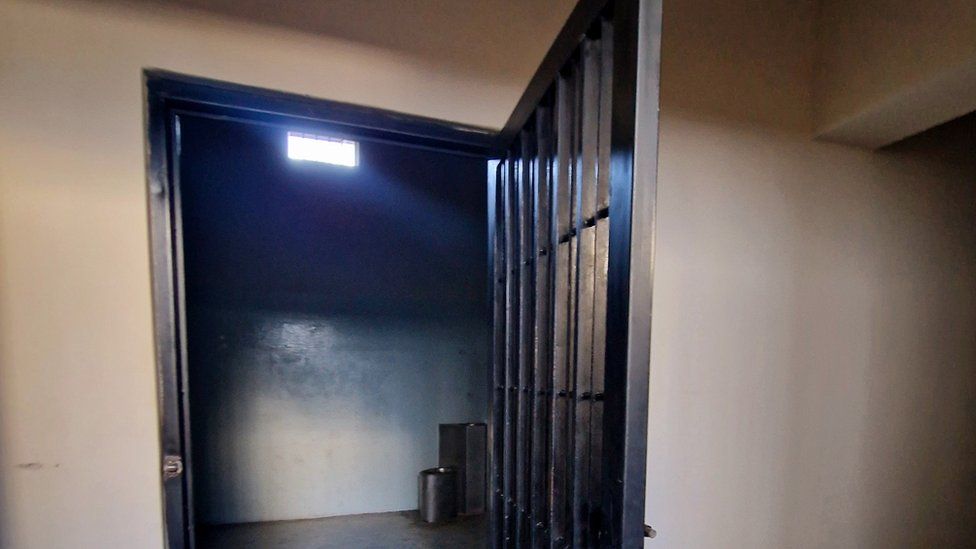
Following the testimony of the four former detainees, Franco Reverberi, who has denied any wrongdoing, was charged in October 2010.
He was not the first member of the Catholic clergy to be accused of actively collaborating with Argentina’s military junta.
In 2007, Christian von Wernich, a Catholic priest who worked as a chaplain for the police in Buenos Aires province, was found guilty of complicity in seven murders and dozens of kidnappings and instances of torture. He was sentenced to life imprisonment.
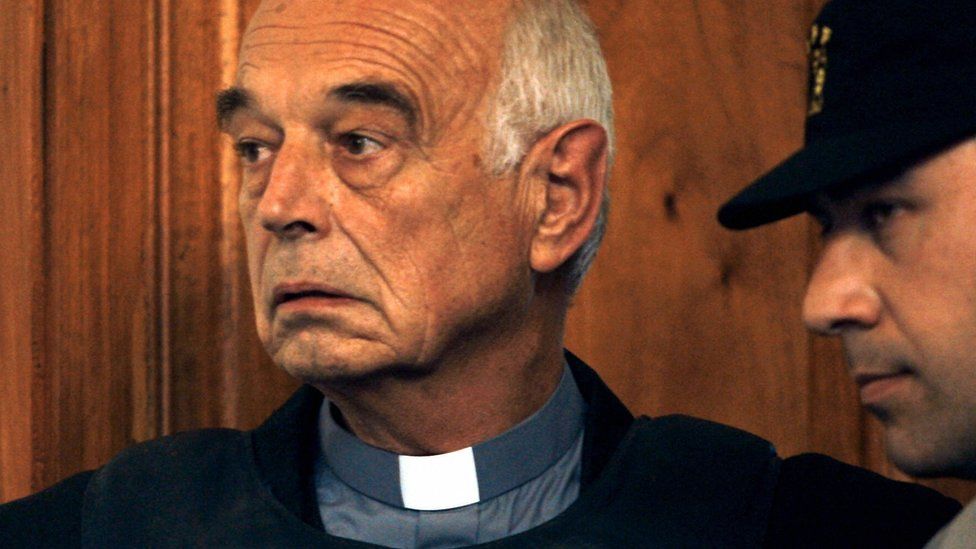
However, Franco Reverberi never appeared in court. The priest boarded a flight to his home country in May 2011.
So by the time he was summoned in June 2011 to give his version of events before a court, he was out of reach of the Argentine judiciary.
He settled in Sorbolo, a small town in northern Italy from where the priest’s family had emigrated when he was just 11 years old.
There, he regularly celebrates mass and many of the town’s 10,000 residents would rather not talk about the accusations which have been levelled against the priest.
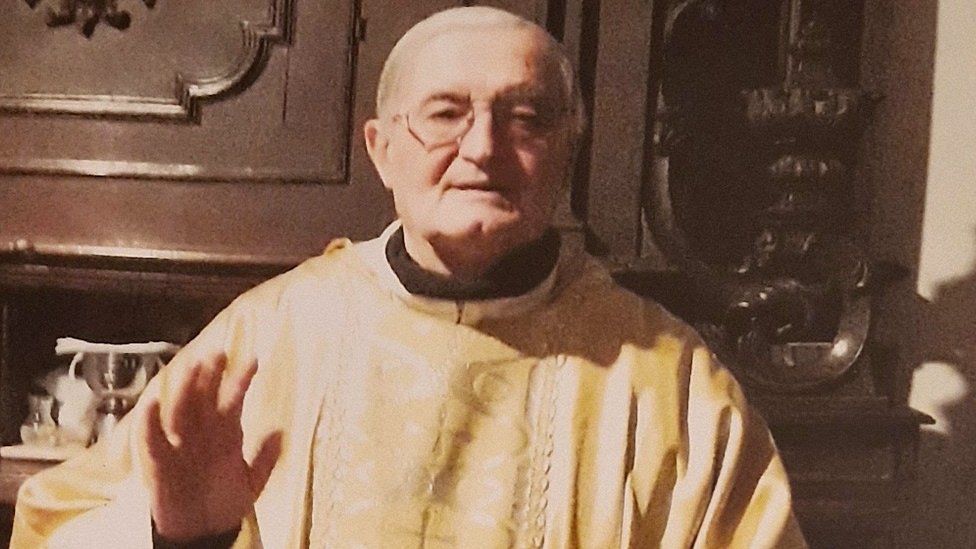
Ilaria, an actress who is originally from Sorbolo, says she only found out about the allegations in 2021 while listening to a radio programme.
“For me it was a shock and I thought nobody knew. When I started asking around and realised that almost everyone knew, I felt even worse: I no longer recognised my own village,” the 49-year-old says.
Lorenza Ramazzotti says that some have rallied around the priest.
“The community is divided,” the 69-year-old former teacher explains, adding that she herself is convinced that “if someone is innocent, as Reverberi claims he is, that person doesn’t run away”.
“And if he really committed crimes as heinous as those he is accused of, I wonder how he can continue to be a priest with that weight on his conscience,” she adds.
Twenty-five-year-old student Manuel Furlan says he was “deeply ashamed” when he found out that “a person accused of those crimes, and a priest at that, was originally from and lives in my village”.
Mr Furlan wants to see Franco Reverberi extradited to Argentina so he can face trial “and can be found guilty or innocent”.
Argentina has long requested that the priest be sent back to stand trial.
But the now 85-year-old, who has always maintained his innocence, successfully fought off an attempt to return him there.
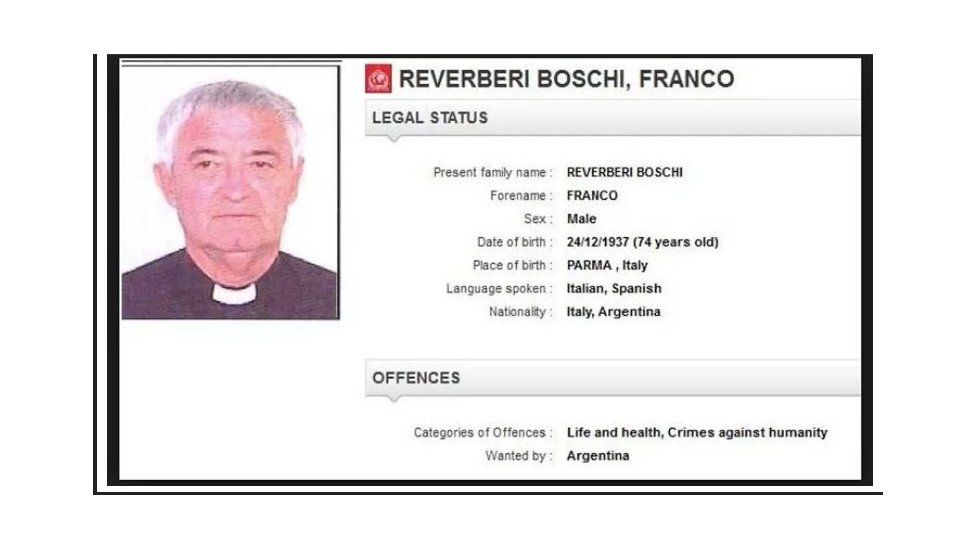
He has denied all along that he fled to Italy to escape justice, instead saying that he went to his home country for a visit and that he has not been able to return to Argentina because of his poor health.
In 2021, a second extradition request was lodged by Argentine lawyer Richard Ermili.
Mr Ermili says the evidence placing the priest inside the detention centre is “solid”.
The 2021 extradition request also accuses Franco Reverberi of involvement in the murder of José Guillermo Berón, a 20-year-old Argentine citizen who disappeared in 1976.
Earlier this month, the Italian justice minister signed off on this second extradition request after it had been approved by Italy’s highest court.
But Franco Reverberi’s lawyer had already lodged an appeal which means the process currently remains stalled pending the outcome of the appeal.
The BBC contacted Franco Reverberi’s lawyer for comment but has not yet received a response.
For Mario Bracamonte, the day the priest is extradited cannot come soon enough.
“I am almost 80 years old, I want to be able to look him in the eyes and ask him where the bodies of the other activists who disappeared are,” he says.
It is a sentiment echoed by Laura Berón.
The niece of disappeared activist José Guillermo Berón says that she hopes that “justice will finally be done, even if he will never really pay for the enormous damage he has caused since he has lived almost his entire life with total impunity”.
Source : BBC

